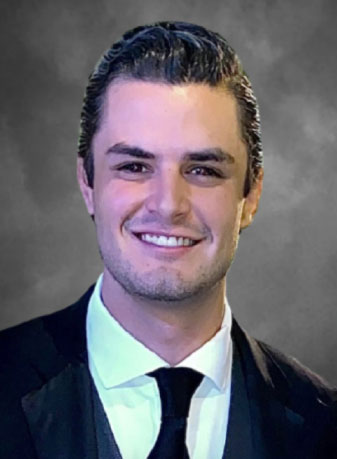Building the Case for Electric School Buses
Roberto Valdes Sanchez-Navarro (MEM '22) talks about his NU Sustainability Fellowship and his work evaluating the monetization and electrification of the Chicago Public School District's school bus fleet.
 From a young age, Roberto Valdes Sanchez-Navarro (MEM '22) recognized the role technology can play in positively changing someone's life.
From a young age, Roberto Valdes Sanchez-Navarro (MEM '22) recognized the role technology can play in positively changing someone's life.
Sanchez-Navarro never forgot that recognition, and he earned his undergraduate degree in mechatronics engineering because he wanted to understand how technology and machines work. Now, as a student in Northwestern's Master of Engineering Management (MEM) program, he is working to apply that knowledge to make a difference for children and the environment.
Sanchez-Navarro was one of five students from across Northwestern University awarded an NU Sustainability Fellowship to participate in Project Green Bus, an ongoing initiative aimed at evaluating the electrification of local school bus fleets. Two previous phases of the project focused on buses for Evanston School District 65. The current phase deals with evaluating the monetization and electrification of Chicago Public Schools’ system’s bus fleet.
“I strongly believe that for any idea, concept, or belief to reach exponential success, you need to go through three phases: learning, understanding and, finally, improving,” Sanchez-Navarro said. “I want to absorb everything I experience throughout the fellowship while leveraging my skills to deliver a positive impact to the community.”
Sanchez-Navarro began the fellowship in January as the project entered its third phase, focused on bringing electric buses to market and understanding how they could be integrated into a fleet for the Evanston school system. Electric school buses are more expensive than regular school buses, but they bring a number of advantages with them. Most notably, electric school buses are an untapped source of energy.
With vehicle-to-grid (V2G) technology, electric vehicles can export energy stored in their battery to local power grids.
"With this technology, electric school buses can act as a power source, providing power back to the grid, or to anything else that may require it," Sanchez-Navarro said. "This technology can be used to reduce building energy consumption costs at peak times or provide back-up power during emergencies."
The primary scope of Sanchez-Navarro's fellowship is to create a business case for implementing V2G technology for electric school buses. If the fellowship students can prove its value, the hope is that cities across the country can transform their school bus fleet into environmentally beneficial rides. The NU Sustainability Fellows are also charged with identifying the best use cases for V2G technology and building a high-level outline for a pilot program.
Sanchez-Navarro is dedicating 15-20 hours per week to the fellowship on top of his MEM work. He's also applied lessons learned in MEM into his fellowship work. Negotiations for Engineers helped him during his early communications with energy companies, transportation businesses, and the local school district, and he expects Decision Tools for Managers to be an asset when he develops the financial model for the project.
Sanchez-Navarro is also enrolled in NUvention Energy, where he's tasked with developing a cleantech or energy-related project that could potentially become a company by the end of the quarter. His experiences in the course are directly influencing his work with Project Green Bus.
Even when the fellowship concludes and after he graduates, he expects MEM to continue to play a vital role in his work and long-term goals.
“I intend to continue my mission to improve the world’s quality of life through the implementation of technology," Sanchez-Navarro said. "The MEM program will continue to give me core management principles, combined with comprehensive quantitative and analytical tools that will help me succeed in my future endeavors."

